
Living the Teenage Nightmare
As a child, I imagined life at 17 as a teenage dream. To my surprise, this was a cruel lie. My teenage years were a nightmare I could not wake up from. Existence felt like a burden, the future a dreadful topic. I was told that I have my whole life ahead of me and to enjoy my youth while I can. Hearing this fueled the guilt that haunted me daily. Nothing was wrong in my life, the sun kept on shining. It felt as if I did not have the right to feel as miserable as I did. Every day looked the same; wake up, freshen up, go to school, come home and retreat to my nest of a bed that I refused to leave until the cycle inevitably restarted. I found temporary escape through video games, food, socially accepted drugs, and dating apps, but it was never enough.
My bedroom was rarely a quiet place as I eventually found comfort in music. The misery that gripped me so violently wasn’t inexpressible after all. The artists that mean the most to me don’t have crowds of fans jumping and bumping to bass so loud it could pop an eardrum. I found that whispers of song could quiet the horrors in my head. Music of heartbreak and loneliness sparked emotions in me that I needed to face. Avoidance no longer suited me as it was time to address the depression consuming my life with the music that inspired rebound and recovery.
The Curtains Close for Good
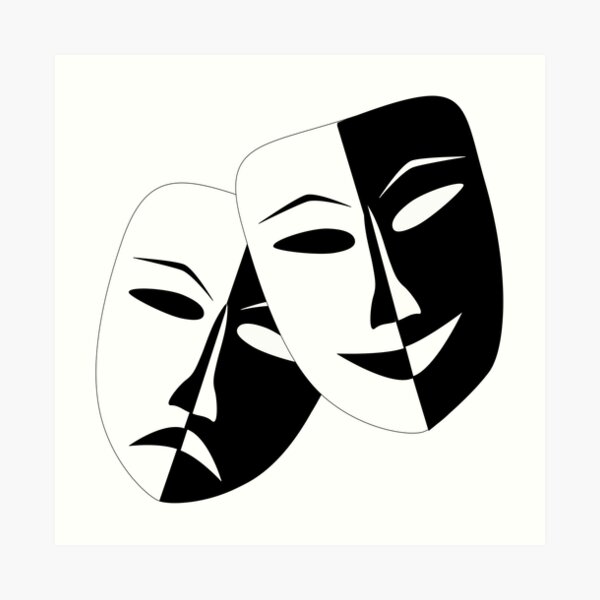
I had an aspirational childhood. I naively believed becoming a star was my destiny. I was a theatre kid, I listened to showtunes like it was nobody’s business. I would dance around my room until the sweat drenched me and looked like I had gone for a swim. I imagined the bright lights of Broadway shining down on me while applause roared through the crowd during my lone performances. In my mind, I never failed to earn a standing ovation.
After starting high school, I joined the drama club. This would shockingly be one of the most traumatic moments of my life thus far. My dreams were shattered as the director and peers criticized my every move. I would strive for lead roles. I knew I was born to be in the limelight. When I was deprived of these opportunities, my peers who did land these roles would tell me I wasn’t good enough. They insisted I had to try harder so I could be more like them. Was I doing something wrong? Was I delusional? Were my talents illusory?
I sought guidance and advice from the so-called “stars” I admired but painfully envied. It was by no means constructive. It was an unnecessarily competitive environment where high school kids judged each other’s skills, sociability, and physical appearances to project their own insecurities. It was almost like a low-budget reality show poorly written for Nickelodeon or something. Friendships were fake and dreams were crushed for everyone involved. My self-esteem rapidly deteriorated. COVID shut the door early on my high school theatre hobby and I never looked back again. I lost my love for musicals and was repulsed at the thought of ever listening to Broadway cast recordings ever again. I began to guiltily fantasize about suicide.
The Queen of Surreal Sadness
It felt like my world was falling apart and taking me down with it. Every night I would lie in bed and search for music that matched the low vibrations of my emotional energy. I scrolled on Spotify for hours every day waiting for an artist that understood my situation. I came across a name I recognized, Lana Del Rey. I recognized her as a popular singer known for her cinematic melancholia that differed from many artists of her time. I had listened to her once or twice as a freshman but didn’t understand suffering as I did at this point. I decided to give her first album, Born to Die, a listen. I was instantly transported to a space of bliss. I lied still in my bed, eyes closed, and cried so hard my head pulsated. The song, “Dark Paradise”, hit me hard. I had no idea music could be so raw and vulnerable. At last, I knew I was not alone in feelings of hopelessness which ironically provided me glimmers of optimism. Lana’s songs are poetic, they reached me at my core and brought my shadow to the surface. It was intimate, I listened to her for days on end and desired to share my love for her with my family. I expected empathy and support but was met with looks of disapproval and concern.
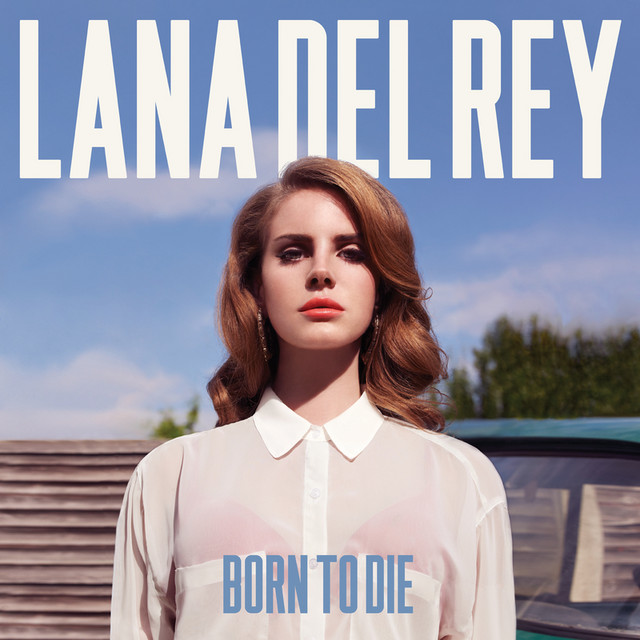
"Your soul is haunting me and telling me that everything is fine / but I wish I was dead / Every time I close my eyes, it's like a dark paradise." (Del Rey)
Losing Hope, Mesmerized by Music
“As I got older, I learned I’m a drinker / Sometimes a drink feels like family / Family,” (Mitski).
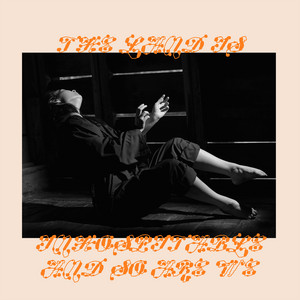
My family tended to deny my hardships. My mom repeatedly told me, “This is normal, you’re a teenager. It’s just hormones. Just think positive.” I felt invalidated. I developed depressive thoughts and tendencies at age 15, but lack of support amplified my loneliness as my teenage years progressed. I engaged in addictive habits. I spoke to therapist after therapist, I was prescribed almost every medication in the book until I was a numb shell of the charismatic child I once was. Nobody and nothing was going to save me, I only felt understood when I listened to Lana’s music. She became an important part of my morning routine. Especially my morning drives to school. I would carpool with my best friends who didn’t always share my taste, “Can’t you play something less depressing?” they would ask me, but I didn’t feel that the music worsened my mood. I enjoyed the lyrical depth I felt modern pop music lacked. I did not feel much improvement with my headspace, but I lived for the music. It is what kept me going in my darkest hours.
The Stars of my Life’s Soundtrack
“Yeah, I wish I’d been a, wish I’d been a teen, teen idle / Wish I’d been a prom queen fighting for the title / Instead of being 16 and burning up a bible / Feeling super, super (super!) suicidal,” (MARINA).
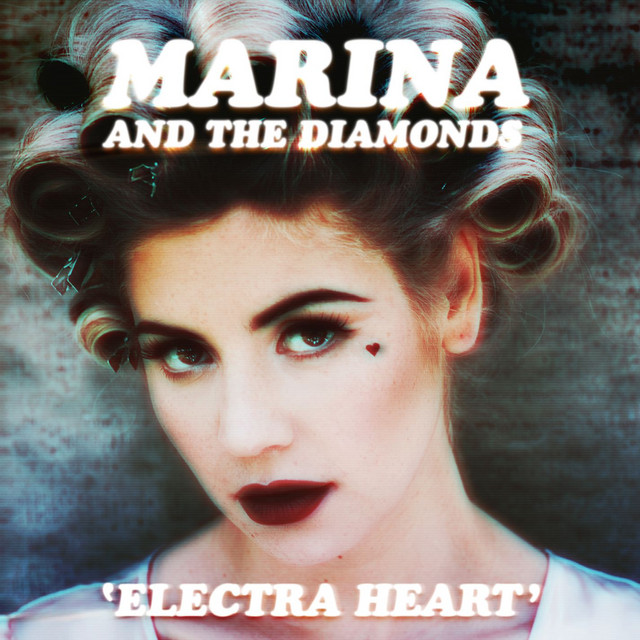
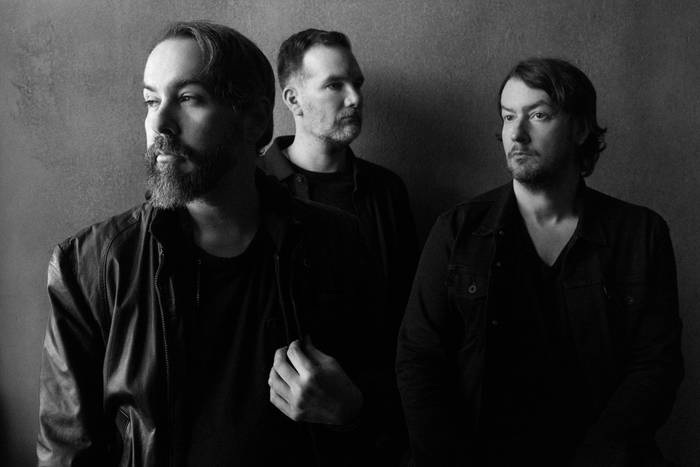
During my senior year, I was uninspired and had no desire to accomplish anything. I locked myself away in my room, gently swaying to the sweet sounds of sadness. I delved deeper into the world of melodic artistry, listening to singers and bands that touched my soul. Cigarettes After Sex has an ethereal quality in their minimalistic but heart wrenching instrumentals. “You’re All I Want” was a song that caught my attention after I would pick a random playlist to cry myself to sleep, most likely titled something like “the world is ending” or “I hate my life”. To this day, it hits my soul so hard that I must ensure I’m in a place where I can comfortably have a meltdown.
Mazzy Star’s solemn tone makes me feel like I’m transcending. Their album, So Tonight That I Might See, is somewhat of a forgotten gem. Most would call them a one-hit wonder, referring to the song “Fade Into You”.
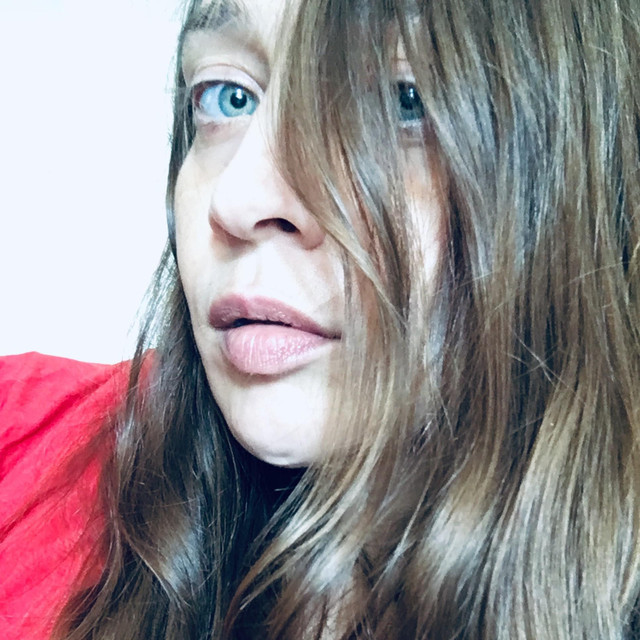
I fell in love with Ethel Cain’s telling of stories unheard. She establishes a narrative with her alias derived from a fictional character in her debut album Preachers Daughter. She explores themes revolving around religious trauma in which I empathize as a free-spirited gay guy.
Fiona Apple’s songwriting is creativity in its purest essence. Admittedly, she does have a bit of a strange off-putting vibe which just so happens to suit my personality perfectly.
It was almost like I knew each one of these musicians personally. I had never listened to albums in their entirety before but now I would lose myself in the music. My speakers would reach volumes higher than the recommended limit and my walls were thin.
The Backlash I Didn’t Need
“Well, he seemed broken-hearted / Something within him / But the moment I first laid / Eyes on him, all alone / On the edge of 17,” (Nicks).
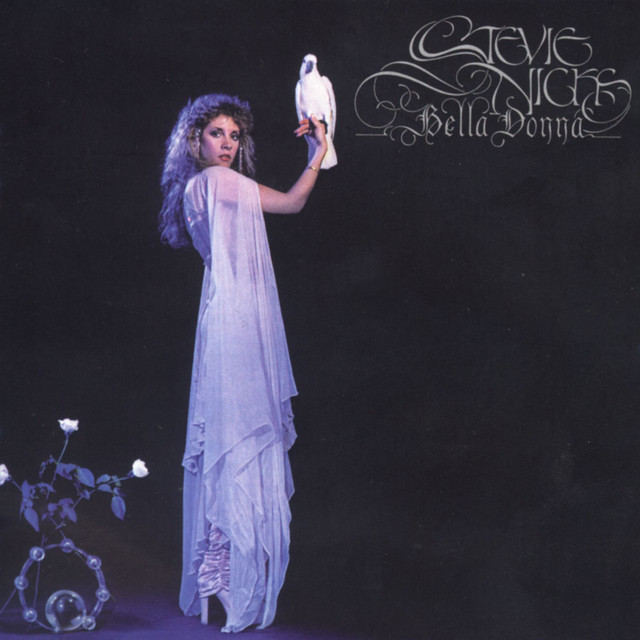
By 17 my parents no longer rejected the idea of their son having a mental illness after it didn’t get better as years passed. With this understanding came disapproval of my newfound music preferences. They partly attributed my setbacks to the artists I grew fond of. They argued that I would never feel better if I listened to such tragic styles of music, identifying with it rather than rejecting it. I knew that this couldn’t be further than the truth. How could art so grounding possibly cause harm to someone? Following an awful year and obligatory college applications, I graduated high school and moved on to the next steps with a tense self-loathing attitude. I left my childhood home while music kept me afloat.
College Crisis and A New Friend
“Days like this, I don’t know what to do with myself / All day and all night / I wander the halls along the walls / And under my breath, I say to myself / ‘I need fuel to take flight’,” (Apple).
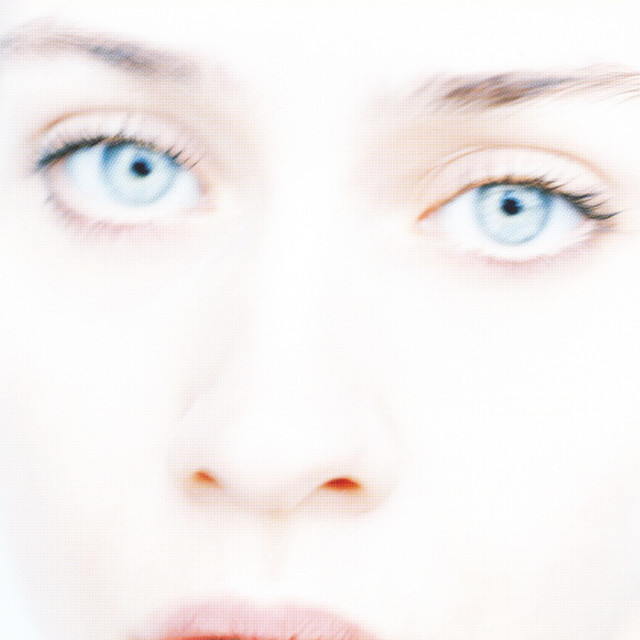
It was the first night of my new college life and I honestly could not have cared less. Fear and isolation consumed me. I sat in the crowd of other freshmen and sensed a mix of excitement and nervousness. I eventually mustered up the courage to turn to the girl next to me and introduce myself. After a few minutes of small talk, I asked the question of the century… “Do you listen to Lana del Rey?”
Following her enthusiastic yes, I undoubtedly knew I had just met my closest friend at Stockton University. We talked every day, ranking albums from worst to best and asking for recommendations. Together we dived into the discographies of Radiohead, The Smiths, Phoebe Bridgers, Deftones, Mitski, and countless others. I put her on to some artists and she returned the favor. We would tell our new friends about songs that deeply changed us and were able to influence them a bit as well. Sharing my love for the music I cherished was equally exciting as it was freeing. Though this was true, I would still go to bed at night hoping the next day would never come. I was apathetic toward every aspect of my life. As awful as this sounds, I would have jumped for joy if I received a stage 4 cancer diagnosis.
Connecting with Others Through Melancholia
“Oh, what can I do? / Life is beautiful, but you don’t have a clue / Sun and ocean blue / Their magnificence, it don’t make sense to you,” (Del Rey).
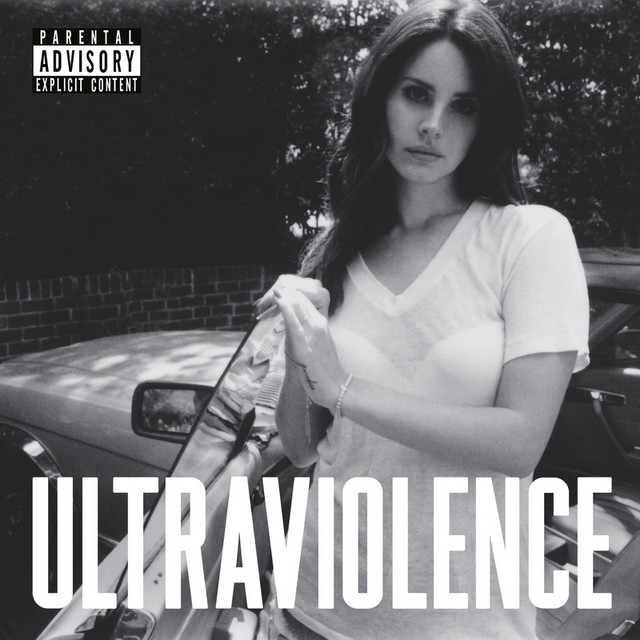
My new friends understood why I listen to the music I do but they still worried about my wellbeing. I made unexpected connections through music as I realized that there are people in this world who have gone through just as much as I have but came out the other side. I failed to realize this as a possibility, I assumed I was naturally doomed. I finally found community but still felt completely alone. I had reached my rock bottom and realized the crucial decision I must make. I could either give up on everything and accept my fate of failure or take back control of my life and commit to finding meaning in it all. I chose the latter and applied to transfer schools knowing I needed a fresh slate more than anything else. I got accepted to Temple University and elected to rebuild my life from the ground up. For the most part, I made these choices with a pair of headphones on.
A New Beginning
“Well, the sky has finally opened / The rain and wind stopped blowin’ / But you’re stuck out in the same ol’ storm again,” (Musgraves).
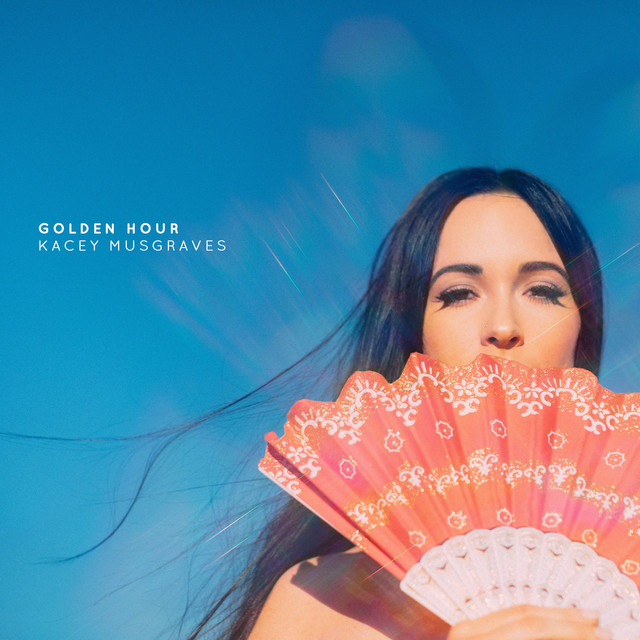
I continue my collegiate path at Temple. This time around, I have an optimistic outlook on the life ahead of me. I received the proper help I needed, and it forever changed the ways I perceive the world. Despite the peace I found within, I still listen to the music that followed me through all the twists and turns of growing up and developing my sense of self. The backlash from my family subsided as they noticed I started smiling again, though I still get the occasional sigh when they hear the same old albums on repeat.
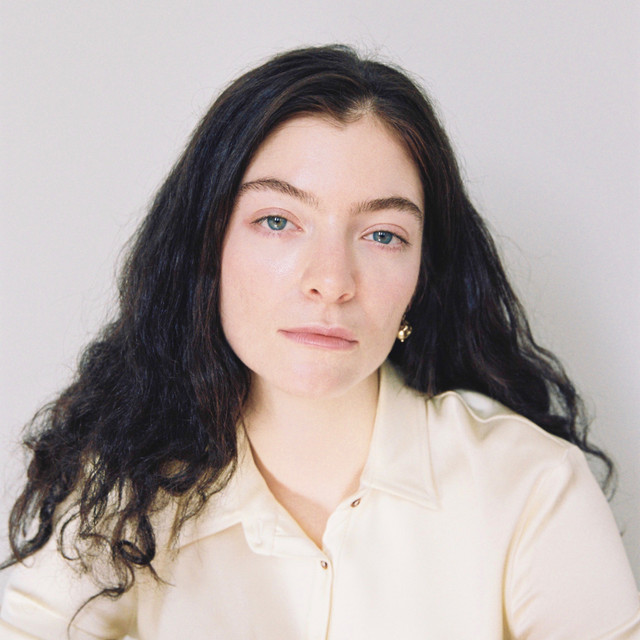
Sometimes I’m asked if I will ever get sick of my favorites and move on. Of course, it naturally ebbs and flows. I like to keep an open mind and expand my playlists from time to time. I created space for artists that don’t always sing about the cataclysmic horrors of a world fueled by shallow superficial desire. Kacey Musgraves, Lorde, and Clairo remind me that life isn’t always sunshine and rainbows, but that doesn’t mean brighter days are a figment of imagination. I’m living proof that life’s challenges breed resilience in those who really want it. I even returned to my roots and occasionally listen to my favorite musicals, but nothing compares to the vulnerability in sorrowful songwriting.
Happiness is a Butterfly
The music dearest to me taught me lessons I needed the most. Regardless of my current mood, my dreary music taste allows me to romanticize my life and make sense of tribulation. I feel peak contentment when finding beauty in the mundane. Sad music revived my lust for life. It’s ironic how depressing musicality has uplifted me more than any forced positive affirmations. I defy the skeptical remarks from family and friends and see melancholia for what it is, acceptance of negative emotions. One cannot find the light in life without immense darkness. The everchanging soundtrack of my life gives me purpose, and that is something I refuse to take for granted. Music is a channel for limitless emotional expression, be it triumph or tragedy, which has personally affected my discovery of meaning in this life. Sad music has made me happier than ever. I owe it to Lana Del Rey for having paved the way for me, verbalizing the ineffable,
“Happiness is a butterfly / Try to catch it like every night / It escapes from my hands into moonlight,” (Del Rey).
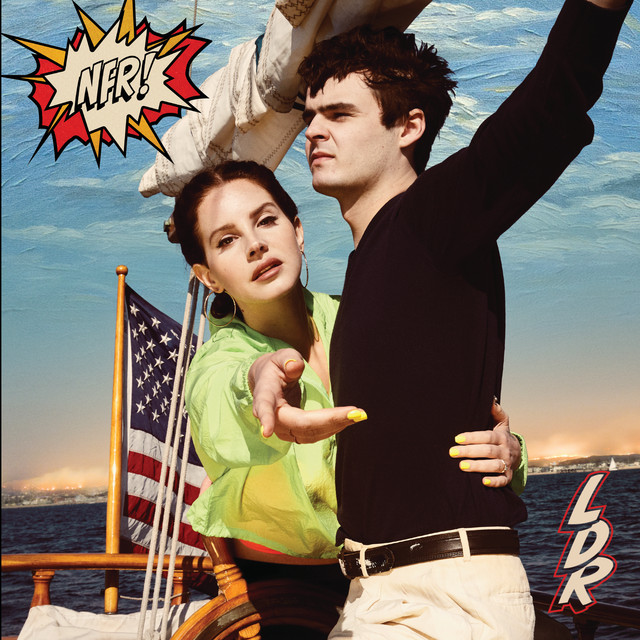
Apple, Fiona. “Sullen Girl.” Tidal, Epic Records, 1996. Spotify,
Cain, Ethel. Preacher’s Daughter, Daughters of Cain Records, 2022. Spotify,
Cigarettes After Sex. “You’re All I Want.” Partisan Records, 2020. Spotify,
Del Rey, Lana. “Black Beauty.” Ultraviolence, Polydor Records, 2014. Spotify,
Del Rey, Lana. “Dark Paradise.” Born to Die, Polydor Records, 2012. Spotify,
Del Rey, Lana. “Happiness is a Butterfly.” Norman Fucking Rockwell!, Polydor Records, 2019.
Spotify, https://open.spotify.com/track/3lG6OtGDsYAOALxEmubQQm?si=f728b30b2fcc46b7
MARINA. “Teen Idle.” Electra Heart, Atlantic Records UK, 2012. Spotify,
Mazzy Star. “Fade Into You.” So Tonight That I Might See, Capitol Records Inc, 1993. Spotify,
Mitski. “Bug Like an Angel.” The Land Is Inhospitable and So Are We, Dead Oceans, 2023.
Spotify, https://open.spotify.com/track/45KMdPDdZTxcXW3lw10R70?si=6d78c418daad4ec6
Musgraves, Kacey. “Rainbow.” Golden Hour, MCA Nashville, 2018. Spotify,
Nicks, Stevie. “Edge of Seventeen – 2016 Remaster.” Bella Donna, Modern Records Inc, 1981.
Spotify, https://open.spotify.com/track/7L3b6iaVhDVjfo52Hbvh9Z?si=837dc539881d4db4